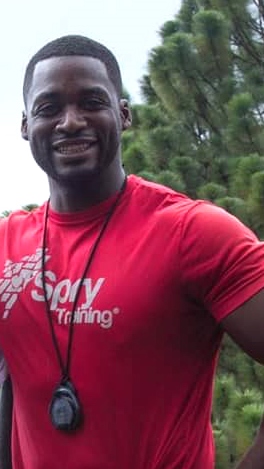JMMB Goal Getter Encourages Men to Maintain Healthy Lifestyles

Prostate cancer is the most common cancer in Jamaica, as well as the leading cause of cancer-related deaths. A recent study from the Caribbean Public Health Agency and the United States Centers for Disease Control and Prevention, found that prostate cancer accounts for 18% – 47% of cancer deaths in the Caribbean region, making it the leading cause of male cancer deaths and the third leading cause of male deaths overall, in the region. September is marked as Prostate Cancer Awareness Month, which is a cancer that only affects men. Against this background, it is fitting that the final episode in the all-male, JMMB Goal Getter Live month-long closed out with a look at men’s health. This recent episode featured the duo, Dr. Alfred Dawes, general laparoscopic and bariatric (weight loss) surgeon and Jae Edwards, director of training, Spry Training, alongside Jerome Jarrett, client partnership manager, JMMB Bank, who moderated the segment.
 Dr. Dawes encouraged men, especially those over 40 years old, to do prostate screening, as this plays a key role in reducing death and other complications associated with prostate cancer. He outlined that the common digital rectal examination (DRE) and prostate-specific antigen (PSA) tests, when combined, provide adequate screening. Noting that the DRE, which is often shunned by Jamaican men, is only mildly uncomfortable and urged them to forego their inhibitions surrounding the procedure, or utilize the services of a female urologist, if that would put their mind at ease. Adding, “Men tend to have a machismo culture that often prevents them from going to the doctor… (however) we have to take better care of ourselves, stop the wild living and all those things that add up to give us these chronic diseases.”
Dr. Dawes encouraged men, especially those over 40 years old, to do prostate screening, as this plays a key role in reducing death and other complications associated with prostate cancer. He outlined that the common digital rectal examination (DRE) and prostate-specific antigen (PSA) tests, when combined, provide adequate screening. Noting that the DRE, which is often shunned by Jamaican men, is only mildly uncomfortable and urged them to forego their inhibitions surrounding the procedure, or utilize the services of a female urologist, if that would put their mind at ease. Adding, “Men tend to have a machismo culture that often prevents them from going to the doctor… (however) we have to take better care of ourselves, stop the wild living and all those things that add up to give us these chronic diseases.”
Fitness expert, Jae, notes that “a healthy body starts with a healthy mental space and self-discipline to manage exercise, consumption of alcohol (and) diet…(and) create the habits you need to maintain good health.” In underscoring the need for healthy nutrition, to complement exercise, he shared, “You can’t out-train a bad diet... you are either feeding disease or fighting it.” In sharing some general parameters for measuring the health of normal individuals, Dr. Dawes outlined: body mass percentage, body fat composition and waist to height measurement, which can serve as a guide, in consultation with the requisite health care professionals.
In further emphasizing the role of a balanced healthy diet, both experts dissuaded individuals from crash dieting, because of the long-term ill-effects. “When you lose weight (in this way) you are losing both muscle and fat and a lot of people, after coming off these diets, pile the weight back on…because their metabolic rate has slowed and they have increased their body fat composition because, while losing weight, they also lost muscle mass,” shared Dawes.
 In giving further pointers on living a healthy lifestyle, the experts noted:
In giving further pointers on living a healthy lifestyle, the experts noted:
- Substitute unhealthy snacks with healthier options. Dr. Dawes cautioned men to know the difference between being hungry and being ‘peckish’, so that they can avoid overeating, especially high caloric, unhealthy snacks. He recommended replacing these with snacks that have a low glycemic value, such as most fruits.
- Minimize alcohol intake: Jae advised that, generally, alcohol consumption should be kept at a minimum, but if you indulge, avoid adding chasers to your alcoholic beverages, in the form of sodas and juices, which are typically high in sugar.
- Fitness and health is relative: Jae further charged that fitness is relative because it is dependent on each individual and what is happening in their body; noting that one’s fitness and health are largely determined by several factors, such as: pre-existing conditions, fitness goals and medical history, among other factors. Although he acknowledged that there are various markers of good health, he reiterated that one’s approach to health is not a one-size-fits-all diet and exercise regime. Adding, “Carbs aren’t bad, so don’t demonize them.” As these provide energy and are needed for daily activity, one’s carbohydrate consumption is dependent on the level of activity and your individual body goals.
- Cross-training for best results: The fitness expert also outlined that combining both aerobics/cardio exercises with anaerobic exercises (strength training) allows persons to avoid injury, increases joint flexibility, overall strength, and weight management. Dr. Dawes, however, cautioned persons to still pay keen attention to their diet and resist the temptation to overeat, because they are engaged in exercise. The weight loss surgeon underscored, “It has to be (a balanced) diet and exercise that go hand in hand…to improve your health, otherwise you are just running twice as hard to stay in the same place.”
"The Beer Belly"
Dr. Dawes, also highlighted a common problem area for men, the ‘beer belly,’ which is where the fat is primarily around their internal organs resulting in a round-looking belly. He notes that the ratio of waist to height, is a good indicator of health, therefore the beer belly is a ‘must-go.’ “If you have a beer belly, no matter how everything (else) looks muscular, you are still in problems,” reiterated Dawes. This state is often associated with insulin resistance and other risk factors that can result in diabetes. Jae also pointed out that this may also be an indication of the stress hormone, cortisone, and encouraged men to include stress management techniques such as: meditation, yoga, prayer and sex, to reduce stress. He advised, if the “beer belly” is a result of cortisone, diet and exercise will not rid you of the problem.
Balancing Health & Wealth
“You have to manage your health like your bank account… weigh up your assets and liabilities, invest heavily in your asset base and reduce your liabilities,” was the word of advice from Jae. Using the financial analogy, he shared that it is important to manage your assets like exercise, deep sleep, good stress management, balanced diet and self-discipline against your liabilities, and check regularly with your health practitioners to ensure you are on track. He also reminded men that a healthy life is about long-term happiness versus unhealthy practices that give short-lived pleasure, similar to investing for long-term wins versus get rich schemes that tend to cause ruin.
In emphasizing a holistic approach to health, Dr. Dawes, reminded men not to trade in the pursuit of wealth for health. Borrowing from the words of the Dalai Lama, “when asked what surprised him most about humanity, he said: ‘Man. Because he sacrifices his health in order to make money. Then he sacrifices money to recuperate his health. And then he is so anxious about the future that he does not enjoy the present; the result being that he does not live in the present or the future; he lives as if he is never going to die, and then dies having never really lived.”
